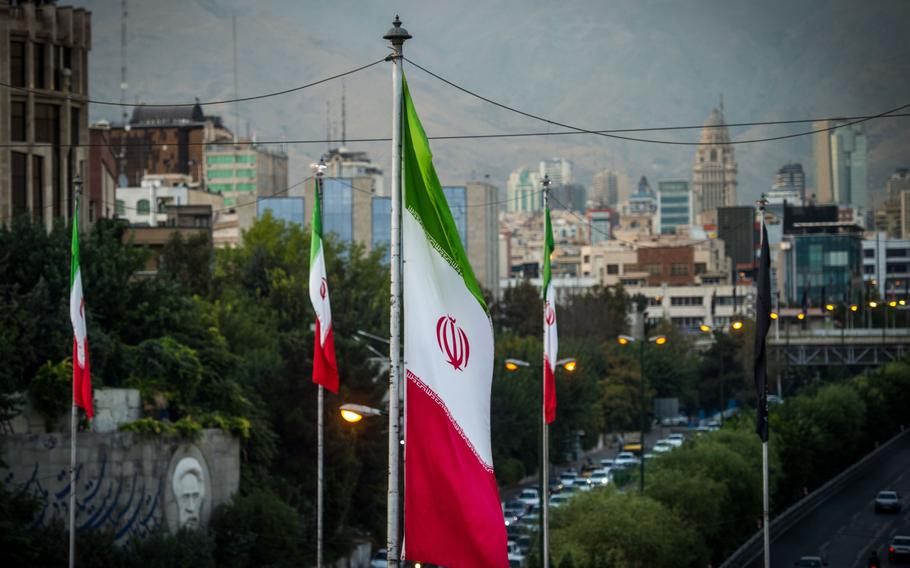Middle East
Iran, US envoys head to Doha in latest bid to save nuclear deal
Bloomberg June 27, 2022

Iranian national flags fly near a major highway through Tehran, Iran, on Sept. 17. 2019. (Ali Mohammadi/Bloomberg )
Iran’s chief nuclear negotiator and his U.S. counterpart are heading to Qatar for the latest attempt to revive the 2015 nuclear deal and end a months-long standoff that has inflamed tensions in the oil-rich Persian Gulf.
Ali Bagheri Kani will travel to Doha on Tuesday in order to “negotiate the removal of sanctions on Iran,” the semi-official Tasnim news agency reported, citing an informed source. People familiar with the matter, who discussed the sensitive negotiations on condition of anonymity, said that Robert Malley, the U.S. Special Envoy for Iran, was already on his way to Qatar on Monday.
The U.S. State Department didn’t immediately respond to a request to confirm Malley’s travel. Iran said the talks will resume on Tuesday, according to the state-run Islamic Republic News Agency.
The pact, known as the Joint Comprehensive Plan of Action, placed strict controls on Iran’s nuclear activities in exchange for the lifting of sanctions, including easing restrictions on the OPEC producer’s oil exports. Reviving it may lead to more Iranian crude sales and help lower prices, which have surged 45% this year to about $110 a barrel.
The negotiations have dragged on for more than a year, even as energy and food prices have surged globally. Russia’s war on Ukraine is driving fear of famine in many countries, and high inflation is stalking the richest economies.
The 2015 agreement unraveled, with dramatic consequences for Iran’s economy and domestic politics, after then-President Donald Trump abandoned it in 2018 and reimposed a much tougher sanctions regime on the Islamic Republic. Tehran significantly expanded its nuclear activities in response, exceeding the limits on uranium enrichment spelled out in the accord. The International Atomic Energy Agency censured Iran this month for failing to cooperate with its investigators.
The bid for new momentum comes as the Group of Seven nations meet in the Bavarian Alps, where officials also discussed the multinational nuclear accord. A senior French presidential official said on the sidelines of the summit that Iran and Venezuela should be allowed to return to oil markets to help stabilize prices, describing U.S. sanctions on energy exports as a “knot” that needs to be untied.
The talks in Doha will involve the European Union mediating between envoys from Tehran and Washington, and they follow a visit to the Iranian capital by the EU’s top diplomats where they said on Saturday that the negotiations will resume within days and take place in a Persian Gulf state.
The negotiations stalled in March after about a year of discussions in Vienna, where the original deal was sealed seven years ago. Officials have said that a few key issues remain unresolved between Tehran and Washington, including a Trump-era terrorism designation for Iran’s elite military branch, the Islamic Revolutionary Guard Corps.